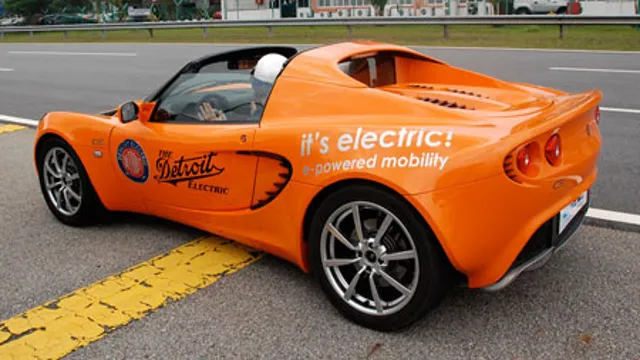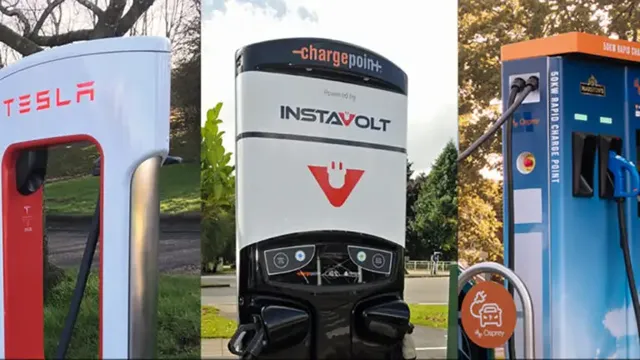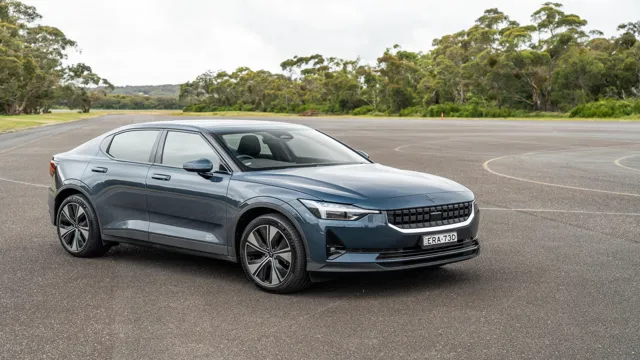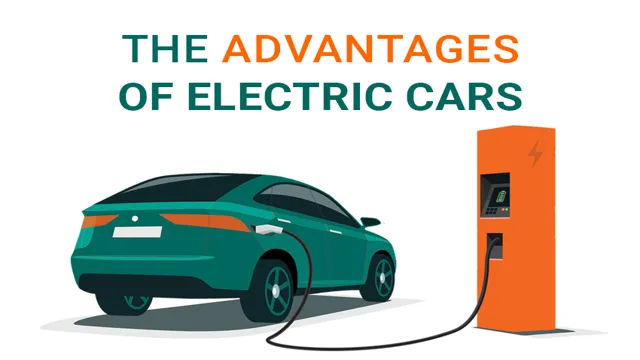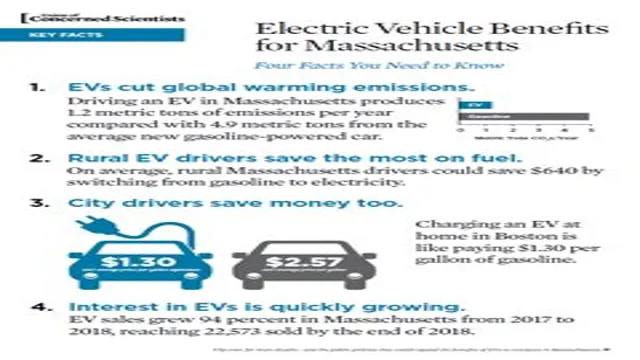Electrifying Detroit: Exploring the Potential Benefits of Electric Cars for Motown’s Future
Electric cars have been gaining popularity for a long time now, and their potential benefits have been extensively covered. But what about the impact they could have on a city like Detroit? Historically, Detroit has been known for its strength in the automotive industry, but this also means it has been disproportionately affected by declines in that sector. As we look towards the future, could electric cars help revitalize the city and create new economic opportunities? Let’s explore the potential benefits of electric cars for Detroit and how they could shape the city’s future.
Environmental Impact
Electric cars have been touted as one of the solutions to reduce carbon emissions and improve air quality, but will Detroit benefit from them? The answer is, unequivocally yes. As the Motor City, where car manufacturing has been the backbone of its economy, the shift to electric cars presents new opportunities for the city’s transformation. With the recent announcement of Ford investing $22 billion in electric vehicles by 2025, Detroit has a chance to reclaim its status as a leader in the auto industry and emerge as a hub for clean transportation.
The environmental impact of electric cars is significant, with zero emissions and lower levels of noise pollution. As more people switch to electric cars, the air quality in Detroit is expected to improve dramatically, leading to better health outcomes for residents. Plus, the shift to electric cars presents new job opportunities, from manufacturing to maintenance and repair, tapping into the skilled workforce and infrastructure already present in Detroit.
In short, Detroit stands to benefit greatly from the shift to electric cars, both environmentally and economically, and it’s up to the city to leverage this opportunity to shape its future.
Decrease in Air Pollution
Air pollution is a major problem facing the world today, with many cities and regions struggling to maintain healthy air quality levels. However, in recent months there has been a significant decrease in air pollution due to the global COVID-19 pandemic. With people staying at home and industries reducing their operations, the amount of harmful pollutants being released into the air has decreased dramatically.
This decrease has had a positive environmental impact, not only in terms of reducing air pollution but also in terms of improving the overall health and wellbeing of our planet. Although this decrease in air pollution is a positive step in the right direction, it is important for us to remember that we must continue to make efforts to reduce air pollution in the long term. By continuing to take steps to reduce our carbon footprint and promote sustainable practices, we can help to ensure a healthier future for generations to come.

Reduced Carbon Emissions
Reduced Carbon Emissions As we continue to see the negative impact of climate change, it becomes increasingly important for us to take action and reduce carbon emissions. When we burn fossil fuels like gas or coal, we release carbon dioxide into the atmosphere, which contributes to the greenhouse effect and ultimately, global warming. By reducing our overall carbon emissions, we can slow the effects of climate change and potentially prevent the worst outcomes.
There are many ways we can reduce our carbon emissions both on a personal and industrial level. We can make changes like using more energy-efficient appliances, reducing our transportation by walking, cycling, or taking public transportation, and switching to renewable energy sources like solar or wind power. On a larger scale, companies can implement green practices like reducing waste, investing in renewable energy production, and adopting sustainable business practices.
Reducing our carbon emissions is not only important for the environment, but it can also have economic benefits. By investing in renewable energy and reducing our reliance on non-renewable resources, we can create new job opportunities in the green sector. Additionally, reducing energy consumption can lead to cost savings for both individuals and businesses.
In conclusion, reducing carbon emissions is critical to mitigating the effects of climate change and ensuring a sustainable future for ourselves and future generations. Whether it’s through small lifestyle changes or large-scale industrial practices, we can all play a part in reducing our carbon footprint and protecting the environment. Let’s make a conscious effort to reduce our carbon emissions and create a better future for ourselves and the planet.
Economic Impact
It’s been a long time coming, but Detroit may finally be able to benefit from the surge in electric car manufacturing. With recent advancements in electric vehicle technology and the growing demand for sustainable transportation options, Detroit is poised to become a major player in the electric car industry. The shift towards electrification not only opens up new job opportunities for local workers, but it also helps to reduce the environmental impact of traditional gas-powered vehicles.
While the switch to electric cars may initially be costly for consumers and automakers alike, in the long term, it has the potential to save money and improve the overall economic outlook of the city. By investing in electric car infrastructure and workforce development programs, Detroit can lead the way in electric car manufacturing and continue to grow its economy for years to come. So, will Detroit benefit from electric cars? The answer is a resounding yes – if the city plays its cards right.
Job Creation in Manufacturing
When it comes to job creation, the manufacturing industry has a significant impact on the economy. Not only does it create jobs within the manufacturing plants themselves, but it also provides job opportunities in other related industries like transportation and logistics. In addition, manufacturing jobs tend to pay higher wages than service industry jobs, which can help boost local economies and improve the standard of living for workers.
The economic impact of the manufacturing industry is far-reaching, with its ability to stimulate growth in other industries and create a ripple effect throughout the economy. With the right investments in technology and infrastructure, the manufacturing industry can continue to be a driver of job creation and economic growth for years to come. So, if you’re looking for a challenging and rewarding career path, consider the many opportunities available in the manufacturing sector.
Increased Demand for Charging Infrastructure
As electric vehicles become more mainstream, there is an increased demand for charging infrastructure to support their growth. This trend has a significant economic impact, creating job opportunities in the installation and maintenance of charging stations, as well as stimulating the economy through increased spending on EV-related goods and services. Additionally, the development of a robust charging network can help attract businesses and tourists to areas with reliable access to charging stations.
The benefits of investing in charging infrastructure extend beyond just EV drivers, as it also supports energy diversification and reduces dependence on fossil fuels. The potential for increased economic activity and reduced environmental impact make investing in charging infrastructure not only a practical decision but also a smart one for the long-term sustainability of communities.
Potential for Increased Investment
When it comes to the potential for increased investment, the economic impact cannot be overlooked. Increased investment means more jobs, more revenue, and overall economic growth. For countries looking to attract foreign investment, creating a favorable business environment is key.
This includes things like low taxes, favorable regulations, a stable political climate, and adequate infrastructure. When these conditions are met, businesses are more likely to invest, and the country as a whole benefits. For existing businesses, increased investment can mean expanding operations or improving technology, leading to increased efficiencies and competitiveness.
Overall, the potential for increased investment has the power to transform economies, creating new opportunities and improving standards of living for all.
Consumer Benefits
Will Detroit Benefit from Electric Cars? Absolutely! Electric cars offer numerous advantages to consumers and have the potential to boost the local Detroit economy. Consumers who choose to buy electric cars enjoy lower fuel costs, reduced emissions, and lower maintenance costs. The demand for electric cars is increasing, creating new jobs and boosting economic growth in the city.
Automakers in Detroit are taking note of the trend and are investing heavily in electric vehicle production. The advent of electric cars will benefit not only the environment but the local economy as well. Increased sales of electric cars provide more job opportunities, which can help boost the local economy.
Additionally, automakers that invest in electric vehicle production are more likely to draw consumers who are looking for environment-friendly vehicles, ultimately leading to increased profits. It’s evident that Detroit will benefit from the widespread adoption of electric cars, and it’s exciting to see the industry evolve towards a greener, more sustainable future.
Reduced Fuel Costs and Increased Savings
When it comes to owning a car, fuel costs can add up quickly and become a significant expense. However, with the increasing popularity of eco-friendly vehicles, consumers can now experience reduced fuel costs and increased savings. Hybrid and electric cars are known for their efficiency and environmentally friendly features, but they also have some major benefits for the consumer.
With these types of cars, the amount spent on fuel can be significantly lower than with traditional gasoline-powered vehicles. Additionally, hybrid and electric cars often require less maintenance and repairs, which can result in additional savings over time. So not only are these vehicles better for the environment, but they can also save consumers money in the long run.
Improved Driving Experience
Improved Driving Experience One of the main benefits of autonomous vehicles is the improved driving experience for consumers. With self-driving technology, drivers no longer have to focus on the road, allowing them to engage in other activities and enjoy a more relaxing ride. This could result in less stress and fatigue for drivers, leading to a safer and more enjoyable travel experience.
Additionally, autonomous vehicles could help reduce traffic congestion by communicating with other vehicles on the road and adjusting their speed accordingly. This could lead to faster and more efficient travel times, reducing travel stress even further. Overall, autonomous vehicles have the potential to revolutionize the driving experience, making it safer, more enjoyable, and less stressful for all drivers on the road.
Conclusion: Detroit’s Future with Electric Cars
In conclusion, the Motor City is poised for an electrifying future thanks to the growing popularity and viability of electric cars. While there may be some initial challenges and adjustments needed, ultimately, the benefits of transitioning to electric vehicles far outweigh any potential drawbacks. From reducing carbon emissions and improving air quality, to saving on gas and maintenance costs, Detroit and its residents stand to gain a lot from embracing this technology.
So, let’s shift into the future and see how far electrification can take us.”
FAQs
How will the use of electric cars benefit Detroit’s economy?
The use of electric cars in Detroit could potentially benefit the economy through job creation in industries related to electric car production and infrastructure development.
What steps is Detroit taking to encourage the adoption of electric cars?
Detroit has implemented initiatives such as offering tax incentives to electric car manufacturers and installing electric car charging stations around the city to encourage the adoption of electric cars.
Will the use of electric cars in Detroit have an impact on air pollution?
Yes, the use of electric cars in Detroit will likely have a positive impact on air pollution as they emit little to no emissions compared to traditional gas-powered cars.
How does the cost of owning an electric car compare to a traditional gas-powered car in Detroit?
The cost of owning an electric car may initially be higher than owning a gas-powered car in Detroit, but the cost of maintenance and charging may ultimately be less expensive in the long run. Additionally, tax incentives and rebates can also help offset the cost.
